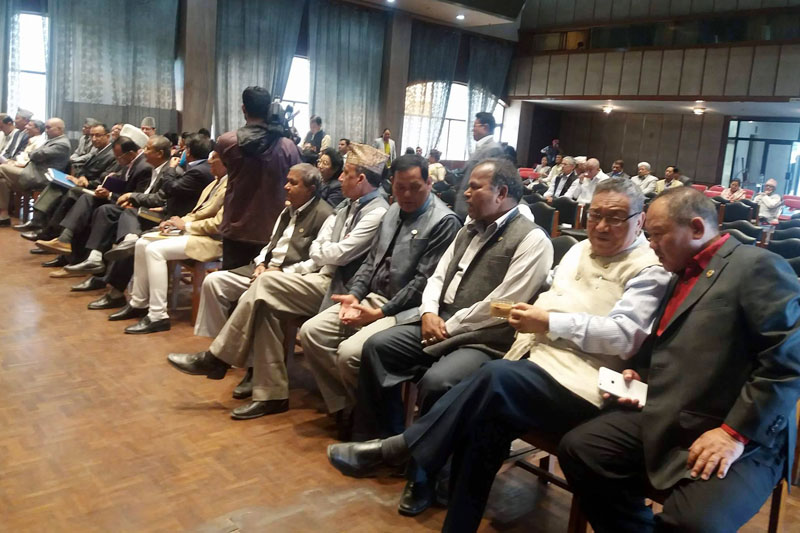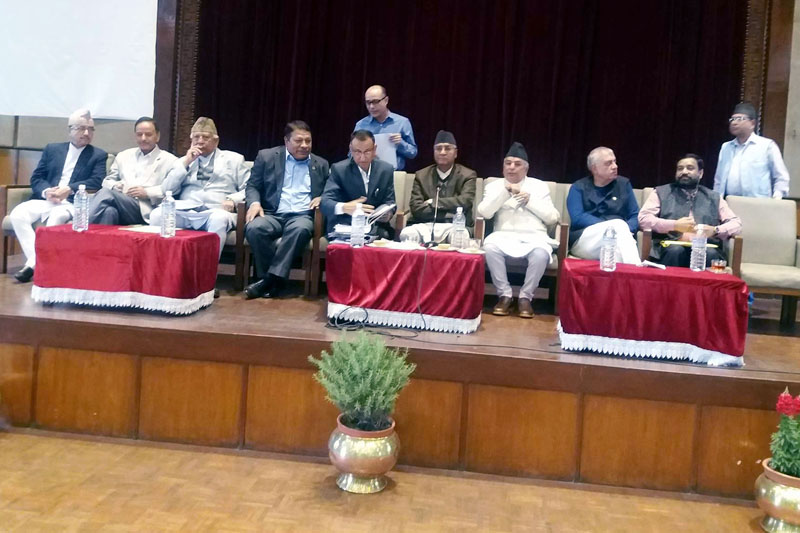Nepali Congress: Local level elections in two phases if need be
KATHMANDU: The ruling Nepali Congress on Friday said the local level elections could be held in two phases if it was necessary to convince the Madhes-centric parties for the polls.
A joint meeting of the party's Central Working Committee and the Parliamentary Party made the decision.
The largest party in the Parliament and the ruling coalition, however, maintained that the first phase of the polls should be held on the stipulated date of May 14.
The two-phase option is also the final choice that could be adopted for few districts only if all attempts failed to hold the elections on May 14 everywhere, NC lawmaker Ananda Prasad Dhungana informed THT Online.
During the meeting, party President Sher Bahadur Deuba had urged the lawmakers not to harbour any doubt over the elections on the scheduled date.
The official statement issued by the PP Secretary Dhruva Wagle after the meeting, however, does not mention discussions on the phases of elections.

Meanwhile, the party also decided that the government could introduce a new Constituent amendment proposal by withdrawing the one currently stuck at the Parliament if the agitating parties agreed for the same.
Another ruling party, the CPN Maoist Centre, had made the similar decision yesterday.
But again, if introducing the new amendment proposal would affect the poll schedule, the government should work to forward the stuck bill into the process and conclude the discussions, the party viewed.
The lawmakers were of the view that the government should be ready to accept even if the bill would fail to get endorsed, according to Dhungana.
The party was flexible about revising the amendment proposal in a consensus of major political parties, added Dhungana.
Meanwhile, during the meeting, the party lawmakers extended suggestions to the Local Level Election Manifesto Preparation Committee of the party led by Mahesh Acharya.
The meeting also suggested that the leaderships of ruling parties should resolve the reported dispute on the seniority order of deputy prime ministers in the Cabinet.






